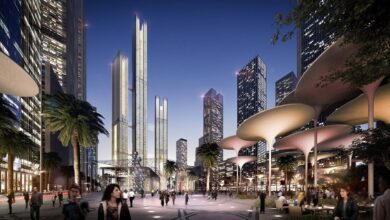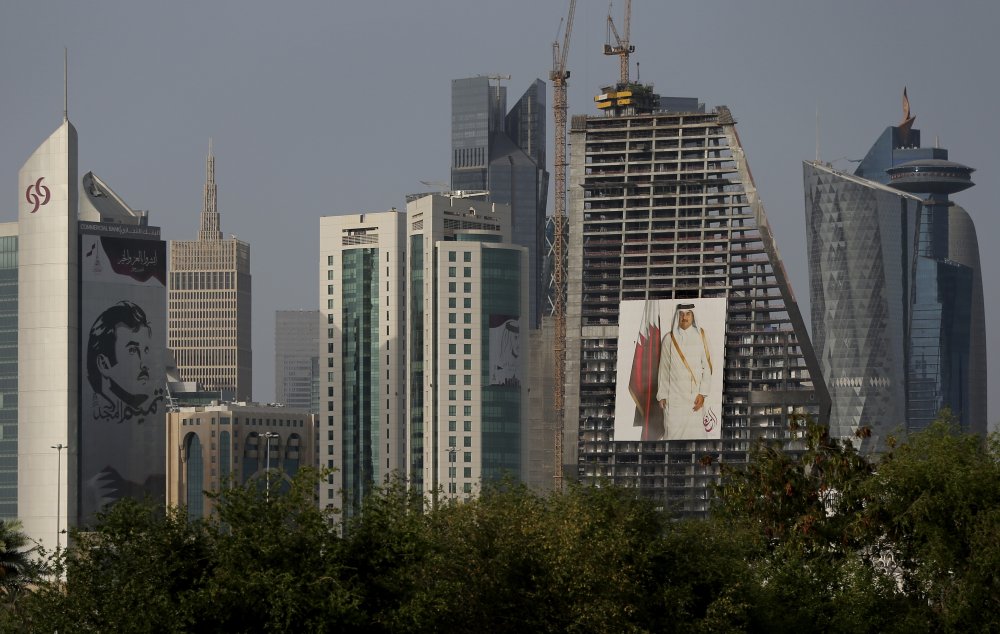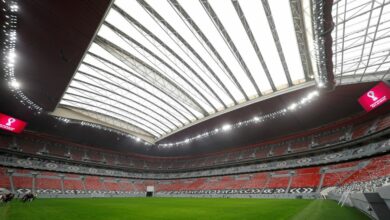DOHA — In 2011, Qatari Emir Hamad bin Khalifa al-Thani said the country would hold its first elections for the Shura Council, whose members are traditionally appointed by the prince.
Elections are scheduled to take place in the second half of 2013. It will be an interesting experience in a country where politics is dominated by the ruling family, and the idea of political parties and any form of opposition is all but completely alien.
Qatar has one elected body: the Central Municipal Council, first elected in 1999. Its 29 members, each representing an electoral constituency, are assigned to four-year terms.
While its main role is to cooperate with the municipal affairs and agriculture ministry in urban planning, many criticize the body for solely facilitating building permits.
Michael Stephens, a researcher at the Doha-based Royal United Services Institute for Defense and Security Studies, argues Qataris are uninterested in a more democratic political process.
Electing members of the Shura Council rather than having them appointed is “one step up” a very long ladder, he adds. A more comprehensive transition to a democratic process, however, requires broader change in Qatari culture that may take at least three generations, he argues.
“There is no direct relationship between Qatar’s internal and external policies. Its support for Arab Spring revolutions can be explained by the fact that the prince is a pan-Arabist. He can be described as the present-time [Gamal Abdel] Nasser, who is committed to improving the lives of his citizens rather than being an authoritarian dictator,” Stephens explains.
On the political level, Qatar was a chief supporter of Arab Spring revolutions and the governments that came into power afterward, especially Egypt, to which it has regularly provided economic support at critical times.
But this same support has created sensitivities among neighboring Gulf countries such as Saudi Arabia and the United Arab Emirates, both of which, compared with Qatar, had warmer historical ties with the overthrown regimes — particularly that of former President Hosni Mubarak.
While Qatar may be comparable to its Gulf neighbors, such as Bahrain and Kuwait, on the surface, their internal politics differ. In Bahrain, the Sunni minority rules over the Shia majority, while in Qatar, the ruling Sunni majority accounts for 92 percent of the population and Shias make up 8 percent.
Qatar is skeptical of Kuwait’s political model, particularly after the mass protests that took place last year against the parliamentary elections law and continuing frictions between the ruling family and the Islamist parliamentary majority.
“The extensive financial support the emir gives to his people is the reason that there is total confidence that a revolution will not happen in his country,” Stephens adds.
Many Qataris may see opposition to the ruling family as a form of national humiliation, and in turn there is broad support for the prince’s decisions. At the same time, this is qualified by adding that citizens trust the ruling powers to take the different segments of society into consideration when making decisions.
Besides the apparent social harmony on the surface and the impression of positive sentiment toward the ruling family, there are gaps among social segments of the population.
“There does not really seem to be one national, agreed-upon dream,” says Stephens.
Ahmed Ali, prominent Qatari journalist and general director of the private newspaper Al-Watan, sits at his office, where on the wall hangs a photo he obviously holds dear.
“This is a picture of me with his Excellency Prince Hamad bin Khalifa al-Thani in 1995. It was his first interview since he took charge of the country.
“The prince is a dreamer … and has a deep vision. I am sure he wants to achieve a renaissance for Qatar and all Qataris believe that,” he says.
He argues Qatar’s internal affairs, rarely talked about openly in the media, are different from other Arab countries, and that the country has its own political and socioeconomic experiment that has so far proven successful.
“Why did you Egyptians go to Tahrir, because of political repression and differences between social classes?” he asks. “Why should we oppose the prince here?”
He points out that a citizen who gets married receives a plot of land to build on and has access to facilitated loans.
“Students have the right to an education at the expense of the state at the best universities in the world, and they are eligible for a monthly salary before graduation. This is real luxury,” he says.
Qataris do not want a democracy like Kuwait’s, where “politicians commit suicide,” nor do they want democracies like those in Spain or Greece, countries mired in debt.
“We have our own experiment,” he says.
Asked about the different political powers expected to compete in the upcoming parliamentary elections, Ali says that while the prince has yet to issue the law, candidates would likely be members of main tribes and families in Qatar. There is no opposition to the prince, he emphasizes.
Lofty ambitions
The ruling family has focused its development efforts on creating a cultural, sports and education hub in the region. That’s besides successfully expanding its business ventures globally through its sovereign wealth fund, the Qatar Investment Authority, which invests surpluses in budget revenues through its Qatar Holdings arm.
With 15 percent of the world’s natural gas reserves, Qatar is the third biggest natural gas producer. Its foreign currency reserves climbed to US$130 billion this year, up from $80 billion the previous year, reflecting its expansion in investments and projects.
The country boasts economic growth rates that top 19 percent, among the highest in the world.
Qatar Holding has taken an aggressive investment approach, buying into French soccer club Paris Saint-Germain, German sports-car maker Porsche, British bank Barclays and Swiss lender Credit Suisse.
Qatar Bank Group is also acquiring Egypt’s second largest private bank, National Societe Generale Bank, and is a major funder of Egypt’s ailing economy, injecting direct cash deposits in a central bank struggling with depleted foreign reserves.
It was recently announced that Qatar plans to invest $200 billion in infrastructure projects over the next 10 years, including a massive array of projects to prepare to host the 2022 FIFA World Cup.
On the local level, there are factors that threaten Qatar’s ability to become a cultural melting pot and may even put it on the road to being less friendly toward foreign labor.
Qataris make up 26 percent of the population of 2 million, while foreigners make up the bulk of the country’s labor force, working in a variety of sectors.
Though the government is highly dependent on this segment of the population, workers often complain of suffering from arbitrary procedures. On another level, and much like other Gulf countries, work conditions are notoriously dire for laborers, on whom the nation relies to build much of its high-rise, state-of-the-art buildings and infrastructure.
In July 2008, Qatar announced a national plan titled “The Qatar National Vision 2030,” which seeks to replace foreign labor with Qataris in senior positions at the economic and planning levels. The plan sets out to encourage more Qataris to join the national labor force, and in turn, become less dependent on its large professional expat community.
In the process, however, citizens are seen as being given more privileges and leeway on the professional front, which come at the expense of the quality of the goods and services provided.
The Qatarization plan sets an employment quota for Qataris at government institutions, banks and private projects. According to investment regulations, all businesses must have a majority Qatari shareholder with a 51 percent stake.
“The government has started to implement some labor policies as part of the plan to have foreigners replaced with Qataris” that are being implemented in an “unethical way,” says a consultant to one of the major state-owned infrastructure companies, who spoke on condition of anonymity.
Senior administrative executives are being replaced with Qataris regardless of their competence, he says.
Ali is proud of the government’s efforts in employing Qataris. Showing off a supplement for “training and employment,” he flipped through the pages, which say “the endowments ministry has 39 vacancies, the Supreme Education Council 200 and Qatar Petroleum Company 1,300.”
“Those are only the first steps to have Qataris take the responsibility for achieving a renaissance for their country,” he adds.
Stephens argues Qatar’s chief problem is the quality of skilled labor. Longstanding policies have created a state of welfare that has not encouraged hard work and productivity in the private sector, he says.
The consultant also tells Egypt Independent of challenges facing the completion in infrastructure for the World Cup.
“The chief problem that Qatar could face in building its infrastructure, particularly for the 2022 World Cup, is the failure to follow international quality standards,” he says.
“Due to administrative and organizational mishaps, a project’s timeline may be doubled,” he adds.
The inauguration of the Hamad International Airport, expected to be Doha’s new main airport, has been delayed — for the fourth time.
“Qatar wants to have a good image at the expense of quality and value,” the consultant says, and that’s besides the “labor laws as well as the working and living conditions for field workers.”
“It is inhumane,” he adds.
As one cab driver of Indian origin says, “The money I make is not much … [and] labor laws are harsh, but I have to accept work here because getting a job in my country is not easy.”




